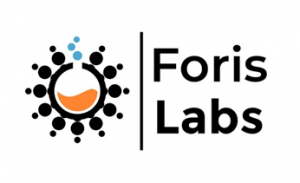
Stanford Center on Longevity Announces “After the Pandemic: Designing the Next Version of Our World” Design Challenge Winners
April 13, 2021, Stanford, CA – The Stanford Center on Longevity has named Foris Labs the winner of the 2020-2021 Design Challenge competition. This team beat out 222 other entries from 37 countries over the course of the competition to win the $10,000 grand prize.
The Foris Labs team from Chukwuemeka Odumegwu Ojukwu University in Nigeria experienced the difficulty of trying to learn science lab skills while online schooling with poor internet connectivity during the COVID-19 pandemic. They presented their design for an offline platform that simulates a science lab for high school students, in which they can perform individual or group experiments.
The second place prize was awarded to PhoneBook from the Metropolitan State University of Denver in the US. The pandemic both caused and shined a light on strained resources at this team’s school, including a limited supply of loaner laptops. The PhoneBook is a 3D-printed electronic device that transforms a smartphone into a laptop computing experience.
The third place winner was Wulu from Harvard Kennedy School, USA (though the team is located in India). Responding to increased mental health issues during the pandemic, Wulu is a chatbot which provides a safe space for adolescents to seek mental health and gender-related help and resources.
View the winners’ and the other finalists’ video presentations.
The 2021 Design Challenge theme encouraged students to examine their lives for lessons they learned during the huge cultural shift brought on by the COVID-19 pandemic, and to use those lessons to innovate for a healthier future for people of all ages. Students were also encouraged to use the expert perspectives gathered in the Stanford Center on Longevity’s New Map of Life: After the Pandemic project as inspiration for their designs.
“We found that the entrants and the types of designs submitted highlighted both the global nature of the Challenge and how the COVID-19 pandemic has affected almost all aspects of life. With finalists’ solutions ranging from remote education to handwashing to mental health to a technology concierge service for seniors, the entries span virtually the entire New Map of Life,” commented Ken Smith, Director of Programs at the Stanford Center on Longevity and Founder of the Design Challenge.
Due to the COVID-19 pandemic, the final competition was held entirely online for the second year in a row. There was wide variance in terms of how the pandemic affected each team throughout the year, and many of the teams were not able to work together in-person to develop their designs. In the face of these challenges the finalists learned new methods of collaboration and produced outstanding work.
“I was so impressed with the creativity and originality these designers showed as they navigated their own hurdles during the pandemic, and actually turned them into opportunities to design for a better future,” said Marie Conley-Smith, who coordinates the Design Challenge. “Getting to know each team virtually over the last few months has been an absolute privilege.”
The finalists all received a $1000 prototyping award, as well as an additional $1000 as a consolation prize for having been unable experience Stanford and the Finals in person. The entire competition is industry-sponsored and free to enter, enabling students from all circumstances to participate.
Here are this year’s winners and finalists:
First Prize
Foris Labs
Chukwuemeka Odumegwu Ojukwu University, Nigeria
An offline platform that simulates a science lab for high school students, in which they can perform individual or group experiments.
Second Prize
PhoneBook
Metropolitan State University of Denver, USA
A 3D-printed electronic device that transforms a smartphone into a laptop computing experience.
Third Prize
Wulu
Harvard Kennedy School, USA/India
A chatbot which provides a safe space for adolescents to seek mental health and gender-related help and resources.
Finalists
Acties (University of Maribor, Slovenia) – An app designed to motivate children to do daily exercise at home using an “advent-calendar”-like reward system.
Foris Labs (Chukwuemeka Odumegwu Ojukwu University, Nigeria) – An offline platform that simulates a science lab for high school students, in which they can perform individual or group experiments.
Intelligent Health Promotion Service System (National Cheng Kung University, Taiwan) – A service which enables patients to complete physiological rehabilitation from home with remote help from medical professionals.
Jolly Jolie (King’s College London, UK) – Soap-coated stickers which reveal themselves as a child washes their hands to encourage thorough handwashing
Me Time (NMIMS School of Design, India) – A multi-device home system aimed at helping mothers working from home have more control over their work and family time.
Near (Northwestern University, USA) – A service which helps families find personalized monitoring solutions for older adults aging at home when their loved ones live far away.
PhoneBook (Metropolitan State University of Denver, USA) – A 3D-printed electronic device that transforms a smartphone into a laptop computing experience.
Wulu (Harvard Kennedy School, USA/India) – A chatbot which provides a safe space for adolescents to seek mental health and gender-related help and resources.
Sponsors
Finance of America Reverse
Honda R&D Americas, Inc.
Target
Procter & Gamble
Eskaton
Judges
Staci Alexander, Director, Thought Leadership, Office of Policy, Research and International Affairs, AARP
Alan Goldstein, Managing Director, P&G Ventures, Procter & Gamble
Todd Murch, President & CEO, Eskaton
Jane Nakagawa, AVP, Automotive Design & UX, American Honda Motor Co., Inc.
Kristen Sieffert, President, Finance of America Reverse
About the Design Challenge
The Stanford Center on Longevity Design Challenge is a global competition aimed at encouraging students to design products and services to improve the lives of people across all ages. Established in 2013, the Challenge is focused on ways to motivate and empower people in their daily lives both inside their homes and in their community, particularly as they remain healthy and vigorous long past the traditional beginning of retirement.
For more information, visit http://designchallenge.stanford.edu
The challenge is made possible by generous sponsorship from a number of companies and foundations. Lead sponsorship is provided by Honda R&D Americas, Inc., Target, and Finance of America Reverse. Additional financial support has been provided by Procter & Gamble, and Eskaton.
About the Stanford Center on Longevity
The mission of the Stanford Center on Longevity is to redesign long life. The Center promotes the acceleration and implementation of scientific discoveries, technological advances, behavioral practices, and social norms so that century long lives are healthy and rewarding. Founded in 2007 by Laura Carstensen, PhD and Thomas Rando MD, PhD, the Center works with more than 150 Stanford faculty, their students and research staffs, as well as leaders from industries, thought leaders, and policy makers to develop workable solutions for urgent issues confronting the world as the population ages. For more information, visit https://longevity.stanford.edu
Follow the Stanford Center on Longevity Design Challenge on Twitter (@StanfordLngLife) and via our Facebook pagefor more updates – including announcements on the 2021-2022 Design Challenge!
Media contact: David Pagano ([email protected])



